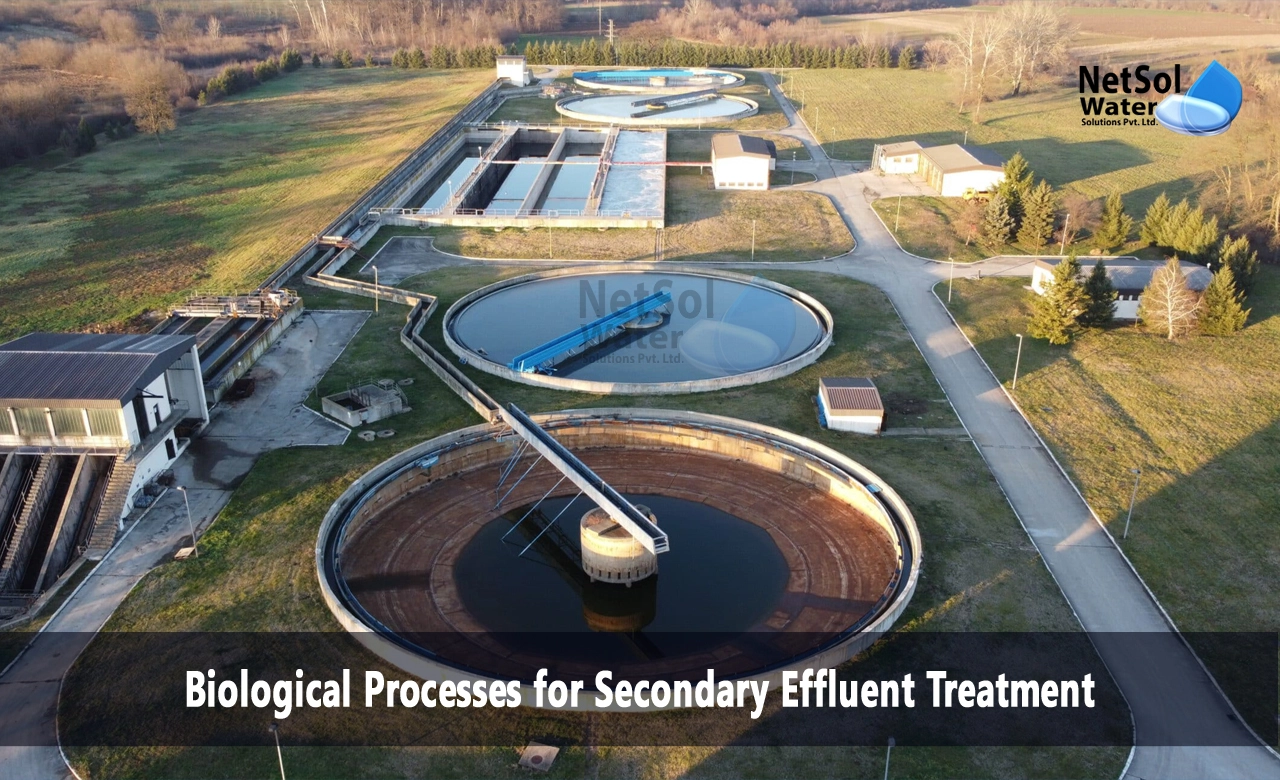What are the Biological Processes for Secondary Effluent Treatment?
Biological processes influence microbial activity for organics and nutrient reduction from wastewater. Conventional methods like activated sludge, trickling filters and rotating biological contactors rely on the specialised cultivation of bacteria and protozoa tailoring growth conditions. But nature offers even more diversity worth harnessing.Emerging systems tap into broader microbial metabolism, innovate reactor designs, and integrate advanced separations to push boundaries.
Let’s analyse promising technologies for enhanced and intensive biological treatment.
Utilising Aerobic Granular Sludge
Aerobic granular sludge represents an evolution of conventional activated sludge. Granules are dense aggregations of microbial groups forming spherical biofilms. This compact structure offers superior settleability, higher biomass retention, and enhanced performance over traditional flocs.Reactor designs like sequencing batch reactors (SBRs) and airlift reactors provide cyclic selection pressure through feast-famine exposure. This stimulates microbial self-immobilization into compact granules around 0.2-0.8 mm in size. Mature granules have excellent settling velocities, allowing high volumetric loads otherwise impossible in floc systems.
Granular systems retain slow-growing organisms like nitrifiers better. Their defined shape also permits the integration of low-energy gravity settling components and hydrocyclone separators downstream. Overall, enhanced microbiology expands biological capabilities while intensified separation reduces footprint.
Upgrading Through Microbial Fuel Cells
Microbial fuel cells (MFCs) take wastewater treatment beyond organics oxidation by harnessing electricity generation. Electrochemically active bacteria drive bio-electrochemical reductions, releasing electrons. With anodes and cathodes optimally positioned, we get microbial electrolysis, creating harvestable energy.
MFC integration with activated sludge allows single-stage carbon and nitrogen removal while offsetting energy for aeration. However, they face challenges with scale-up and competing anaerobic methane generation. Still nascent, MFCs represent an emerging renewable energy concept within the wastewater bioreactor realm.
Mainstreaming Anammox Processes
The discovery of anaerobic ammonium oxidising (anammox) bacteria introduced revolutionary nitrogen removal shortcuts. Anammox combines ammonia with nitrite directly to nitrogen gas, circumventing longer nitrification-denitrification. This offers savings of up to 63% oxygen and 100% external carbon needs!
Challenges exist propagating slow-growing anammox bacteria. However, demonstrations have achieved high volumetric conversions in anoxic granular systems. With innovations tackling biomass retention continuing, the next wave of nitrogen removal relies on getting anammox mainstream. Mainstreamed sustainable nitrogen removal is within sight.
Membrane Aerated Biofilms Reactors
Membrane-aerated biofilm reactors (MABR) provide pure oxygen to attached biofilms via passive gas-permeable membranes submerged in wastewater flows. This approach offers greater oxygen transfer, driving intensive, high-rate biodegradation equivalent to membrane bioreactors.Eliminating bubble aeration and mixing cuts energy expenditure significantly, while the external biofilm minimises sludge production. Oxygen levels can be modulated to drive specialised nitrogen removal reactions. MABRs represent a major technological leap in pairing advanced materials with enhanced bioconversion, all in a simplified, compact system.
Conclusion:
Technologies like aerobic granular sludge, microbial fuel cells, anammox-integrated systems, and membrane-aerated biofilms offer enhanced microbiology, niche bioreactors, and integrated membrane separations.These innovative approaches work to expand next-generation treatment capabilities while lowering facility footprints and energy usage simultaneously.
Netsol Water is Greater Noida-based leading water & wastewater treatment plant manufacturer. We are industry's most demanding company based on client review and work quality. We are known as best commercial RO plant manufacturers, industrial RO plant manufacturer, sewage treatment plant manufacturer, Water Softener Plant Manufacturers and effluent treatment plant manufacturers. Apart from this 24x7 customer support is our USP. Call on +91-9650608473, or write us at enquiry@netsolwater.com for any support, inquiry or product-purchase related query.



